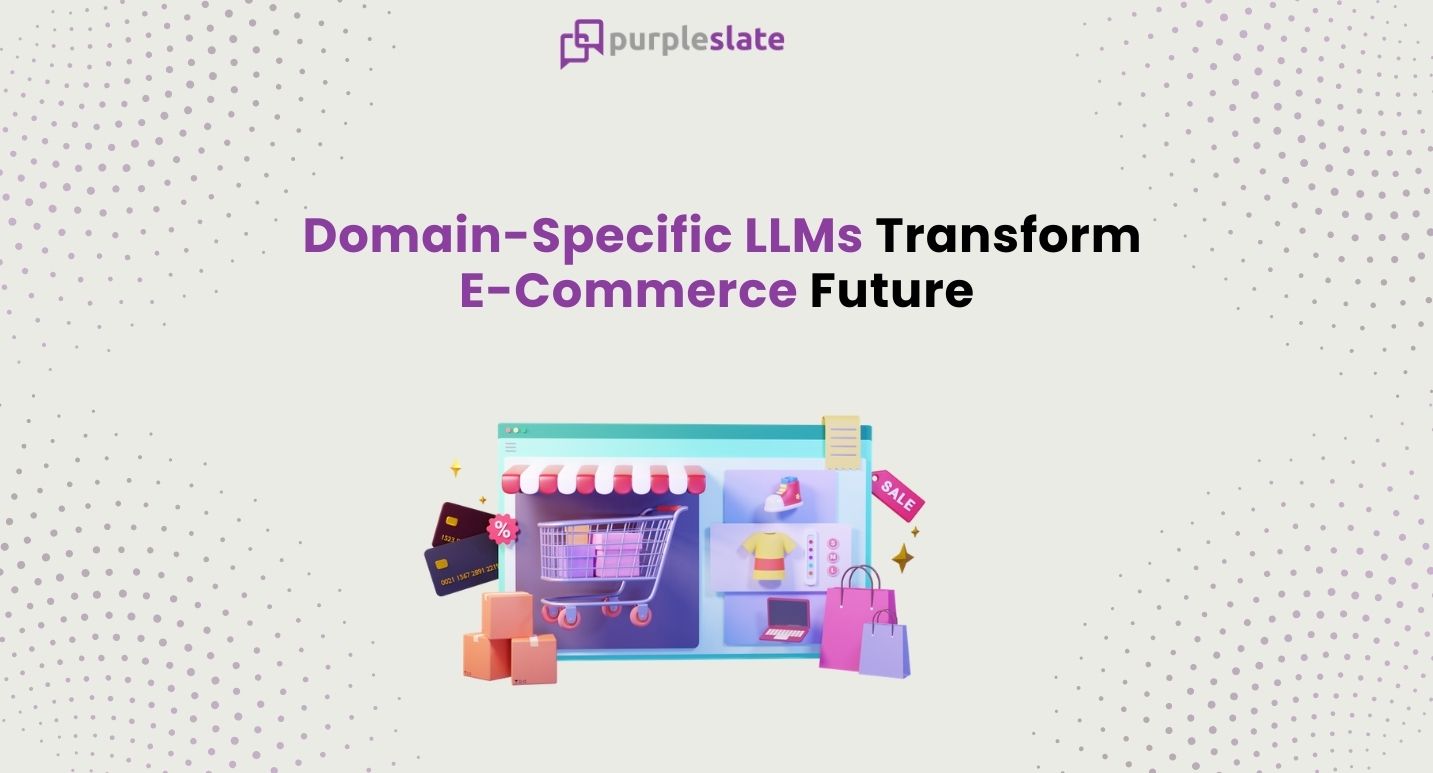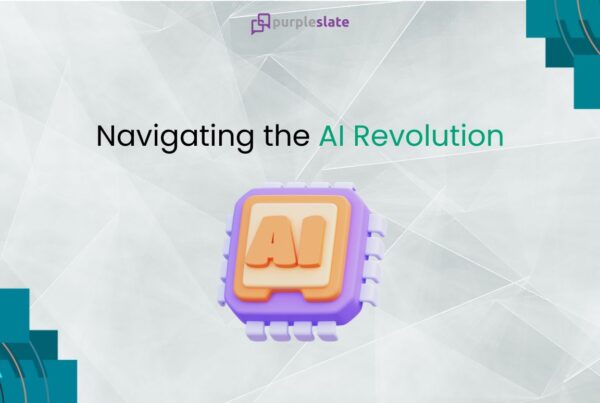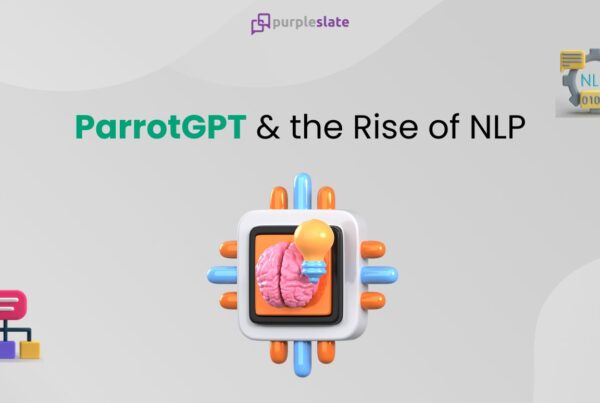
Introduction
In the dynamic landscape of E-Commerce, where innovation is the key to standing out, Domain-specific Large Language Models (LLMs) are making a significant impact. These specialized models are becoming instrumental in reshaping the landscape of generative AI, providing a distinctive touch to the way businesses operate in the digital realm. This blog delves into the practical applications of Domain-specific LLMs, shedding light on their real-world examples and demonstrating how they bring transformative changes to different facets of the E-Commerce ecosystem.
As we navigate through the realm of Domain-specific LLMs, we will explore concrete instances that highlight their efficacy in enhancing various aspects of E-Commerce. From personalized customer interactions to optimized content generation, these models are proving to be invaluable tools for businesses seeking to thrive in the highly competitive and ever-evolving world of online commerce.
Hyper-Personalize Interactions
Personalization is the cornerstone of modern E-Commerce, and Domain-specific LLMs play a pivotal role in elevating customer interactions to unprecedented levels of customization. These models delve into user behavior data, transaction histories, and even social media interactions to glean insights. The result? Tailored customer interactions that include personalized product recommendations, relevant promotions, and even communication styles that align with individual preferences.
Delving deeper into the section, explore how LLMs adapt their language to match customer demographics, ensuring a more relatable and engaging interaction. The nuanced understanding of user preferences allows these models to anticipate needs, creating a seamless journey from product discovery to checkout. The impact extends beyond individual transactions, fostering brand loyalty through personalized engagements that resonate with the unique identity of each customer.
Optimize Search Experience
Search is the gateway to discovery in E-Commerce, and Domain-specific LLMs act as the custodians of this gateway. By comprehending user queries with a contextual understanding of the industry, these models transform the search experience. Gone are the days of sifting through irrelevant results – LLMs ensure that the digital shelves are efficiently organized, presenting users with precisely what they are looking for.
Take a deeper look at how LLMs not only interpret keywords but also grasp the intent behind searches. The semantic understanding allows these models to consider synonyms, understand colloquial language, and adapt to the ever-evolving ways users express their needs. The result is an optimized search experience where users find what they seek effortlessly, fostering a positive and efficient interaction with the E-Commerce platform.
Enhance Product Recommendations
Product recommendations are more than algorithms – they are a personalized shopping assistant, and Domain-specific LLMs redefine precision in this domain. This section unravels the mechanics behind LLM-driven product recommendations, exploring how these models leverage user behavior data, purchase history, and even external factors like seasonal trends to curate suggestions that align perfectly with individual preferences.
Extend the exploration to the role of LLMs in cross-selling and upselling strategies. These models not only predict what users might need next but also understand the art of suggesting complementary products. The section showcases how businesses have witnessed increased average order values and improved customer satisfaction through the strategic deployment of LLM-powered recommendation engines.
Intelligent Support with Chatbots
Customer support in E-Commerce has transcended traditional methods, thanks to the integration of intelligent chatbots powered by Domain-specific LLMs. These bots are not merely programmed responders; they are conversational agents capable of understanding the nuances of customer queries. From addressing routine questions to resolving complex issues, LLM-driven chatbots provide intelligent support that mirrors human-like comprehension.
Dive deeper into the intricacies of how these chatbots evolve during customer interactions. LLMs empower them to adapt their responses based on contextual cues, user history, and the specific intricacies of the industry. The section explores how this adaptability results in a more empathetic and efficient support system, enhancing the overall customer experience.
Decode Market Trends
Anticipating market trends is a strategic advantage in E-Commerce, and Domain-specific LLMs function as digital oracles providing insights that go beyond traditional analytics. Explore how these models analyze vast datasets, social media trends, and industry publications to decode emerging market trends. The section delves into specific instances where LLMs accurately predicted shifts in consumer preferences or identified upcoming product trends.
Extend the exploration to the real-time adaptability of LLMs in response to dynamic market conditions. As trends evolve, LLMs update their analyses, allowing E-Commerce businesses to stay agile and responsive. The section showcases instances where businesses leveraged LLM-generated insights to launch successful campaigns or adjust product offerings, reflecting the invaluable role of these models in strategic decision-making.
Facilitate Seamless Transactions
Completing a purchase involves multiple touchpoints, and Domain-specific LLMs contribute to each step of the transaction journey. From optimizing the checkout process to providing relevant information during payment, these models enhance operational efficiency. This section delves into specific use cases where LLMs played a pivotal role in reducing cart abandonment rates, streamlining payment processes, and ensuring a frictionless end-to-end transaction experience.
Explore the adaptability of LLMs in addressing regional variations in transaction processes. These models can tailor their interactions to align with cultural expectations, language preferences, and even regulatory requirements, ensuring a globally seamless transaction experience. The section highlights instances where businesses achieved international success by leveraging the versatile capabilities of Domain-specific LLMs in transactional operations.
Streamline Content Marketing
Content marketing forms the backbone of E-Commerce strategies, and Domain-specific LLMs are the secret weapon in crafting compelling and relevant content. Delve into how these models streamline content creation processes, generating product descriptions, blog posts, and marketing copies that align seamlessly with brand identity. The section explores the efficiency gains and consistency achieved through LLM-driven content creation.
Go beyond the basics and explore how LLMs contribute to content ideation. By analyzing market trends, customer sentiments, and competitor strategies, these models suggest content topics that resonate with the target audience. The dynamic nature of LLMs ensures that content remains fresh and aligned with the ever-changing dynamics of the E-Commerce landscape, contributing to sustained engagement and brand relevance.
Predictive Inventory Management
Effective inventory management is a cornerstone of successful E-Commerce, and Domain-specific LLMs redefine precision in stock forecasting. Delve into how these models leverage historical data, market trends, and external factors like economic indicators to predict demand accurately. The section explores specific instances where businesses optimized inventory levels, minimizing stockouts, reducing overstock situations, and ensuring a finely tuned balance that aligns with market demands.
Extend the exploration to the real-time adaptability of LLMs in response to dynamic market conditions. As trends evolve, LLMs update their analyses, allowing E-Commerce businesses to stay agile and responsive. The section showcases instances where businesses leveraged LLM-generated insights to launch successful campaigns or adjust product offerings, reflecting the invaluable role of these models in strategic decision-making.
Conclusion
As we conclude this exploration of Domain-specific Large Language Models in E-Commerce, the transformative impact of these models becomes clear. From revolutionizing the way products are described to enhancing personalized interactions, optimizing search experiences, and streamlining various operational aspects, Domain-specific LLMs are the architects of a new era in online retail. As businesses continue to embrace these models strategically, the promise of a future E-Commerce landscape marked by efficiency, personalization, and unprecedented customer satisfaction beckons.




